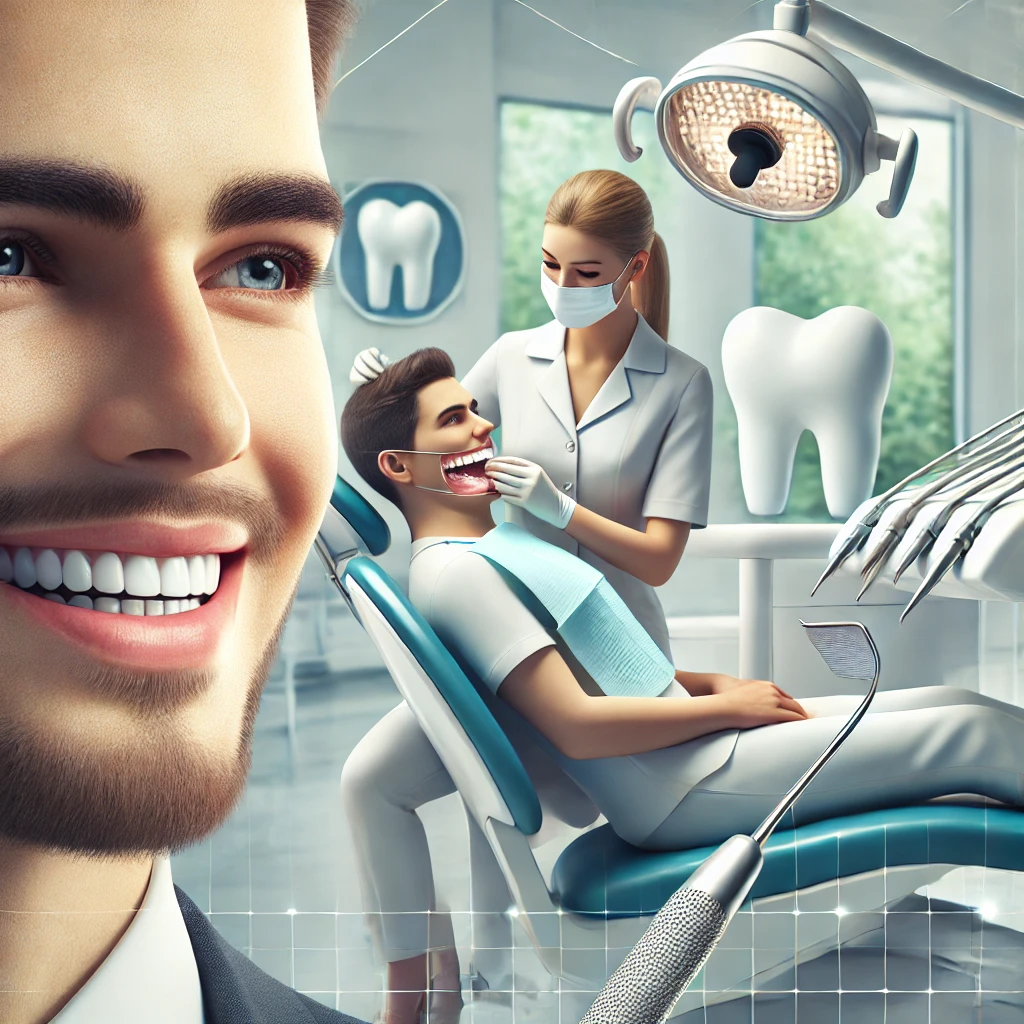Key Takeaways:
- Full mouth reconstruction can significantly improve oral health and aesthetics.
- It’s vital to consult with a qualified dental professional for personalized treatment.
- The process often involves a variety of dental procedures over time.
Table of Contents:
- What is Full Mouth Reconstruction?
- Who Needs Full Mouth Reconstruction?
- Benefits of Full Mouth Reconstruction
- Common Procedures Involved
- How to Choose the Right Dentist
- Expected Recovery Process
- Cost Considerations and Insurance
- Real Life Success Stories and Testimonials
Embarking on the journey toward a radiant and completely functional smile can be life-changing. Dental reconstruction involves a comprehensive approach that aims to restore the aesthetics and functionality of your entire mouth. This process is invaluable for those who have suffered extensive dental issues and want to regain confidence in their smile. Comprehensive dental reconstruction isn’t merely about vanity—it’s often a necessary journey for many looking to improve their dental health’s function and appearance.
But how does one know if they need such a comprehensive procedure? What benefits can you expect, and what should you anticipate along the journey? Let’s explore these questions and more as we uncover the essentials of full mouth reconstruction, ensuring you’re well-informed. Whether to correct a bite or treat severe decay, this comprehensive treatment plan can significantly alleviate physical discomfort and self-consciousness regarding one’s teeth.
What is Full Mouth Reconstruction?
Full mouth reconstruction is a thorough treatment process designed to restore the entire mouth in function and aesthetics. Unlike simple cosmetic procedures, this complex treatment plan addresses various dental issues ranging from missing teeth, decay, and worn surfaces to jaw conditions. It’s a personalized solution that combines multiple therapeutic techniques to create a harmonious and balanced oral environment. Reconstruction isn’t just about replacing teeth; it considers the alignment of jaws, the health of gums, and the look of the smile. Patients undergoing full mouth reconstruction often seek to resolve problems such as headaches, jaw pain, and discomfort. These procedures also aim to reduce abnormal wear of the tooth structure, ensuring that one’s dental setup lasts significantly longer. By aligning the jaw and improving the bite, a full mouth reconstruction also reduces the wear and tear caused by an improper dental structure. Ongoing problems frequently lead to additional decline and can be effectively managed with thorough dental reconstruction.
Who Needs Full Mouth Reconstruction?
Individuals who have experienced significant tooth damage from decay, physical injury, or congenital issues are often candidates for full mouth reconstruction. Patients with long-term oral health problems affecting appearance and dental function are ideal for this treatment. It frequently addresses issues that accumulate over time, requiring a comprehensive correct approach. People with poor oral health or severe dental injuries usually see the most significant benefit.
Moreover, individuals suffering from continual gum disease, jaw pain, or chronic headaches often discover that their problems are directly linked to dental issues. Full mouth reconstruction offers a more comfortable, permanent solution for those who find their dentures or other oral apparatus uncomfortable or poorly fitting. Even those with significant alignment challenges can find paths toward relief and a more natural appearance through this treatment. It’s about attaining better oral health outcomes while greatly enhancing personal comfort.
Benefits of Full Mouth Reconstruction
The benefits of undertaking a full mouth reconstruction are profound. First and foremost, it dramatically improves the patient’s ability to chew, digest food properly, and speak clearly. A study published by Healthline highlights that an improved bite can prevent excess stress on teeth and the temporomandibular joint. Furthermore, the psychological benefits, such as enhanced self-esteem and social confidence, should be considered. Additionally, it sets the groundwork for maintaining long-term oral health, preventing future issues related to neglect or improper dental relationships. The functional benefits are immense—enabling better digestion, more explicit speech, and reduced discomfort. On a psychological level, transformed smiles significantly boost self-esteem, allowing individuals to connect more confidently in social and professional contexts. There’s an inherent value in looking and feeling better about one’s oral health. People often find that a newfound confidence transforms their social and professional interactions. Addressing dental health improves physical function and enhances overall quality of life.
Common Procedures Involved
A full mouth reconstruction often involves several vital procedures individualized to each patient. These may include dental crowns, veneers, bridges, and implants to restore the teeth. Periodontal treatments might be necessary to ensure gum health, while orthodontic adjustments can align bite and function. Each step is meticulously planned to achieve a balanced and aesthetically pleasing result. The totality of procedures forms a comprehensive plan tailored to each individual’s needs. A thorough assessment frequently shows the necessity for further procedures, like root canal therapy or gum disease management, before starting the crucial phase. New technologies and materials have often made procedures less invasive and faster recovery, adding significant patient benefits. Various options afford an incredibly personalized approach that can be designed to match both aesthetic desires and functional necessities. Modern advancements in dental technology have paved the way for sophisticated procedures that are precise, less invasive, and result in faster recovery times.
How to Choose the Right Dentist
Choosing a dentist skilled in full mouth reconstruction is crucial. Look for professionals whose practice history emphasizes successful reconstructions and therapeutic procedures. They should be able to provide comprehensive consultations and customized treatment plans. Check patient reviews and testimonials to hear about others’ journeys and experiences. It is also helpful to seek a dentist who stays on top of the latest technologies and methods, ensuring efficient and effective procedures. Ask about their experience with similar cases and what kind of outcomes their patients typically experience. Consider visiting multiple clinics to compare treatment plans, costs, and each dentist’s comfort level during consultations. The right dentist will take the time to listen to your concerns and explain the process in detail, making sure you’re comfortable and confident in the treatment plan they propose. Consider asking for before-and-after pictures of their patients to gauge their expertise and aesthetic vision.
Expected Recovery Process
Patients should anticipate an adaptation phase while acclimating to their new dental procedures. Pain management and dietary modifications might be necessary during the initial recovery phases. Monitoring progress regularly with your dentist is crucial to avoid complications and ensure optimal results. It is essential to adhere closely to the aftercare recommendations the dentist provides. It might include maintaining a soft-food diet temporarily, taking prescribed medications, and avoiding certain physical activities. For some, the process might involve minor discomfort, but knowing that each step takes one closer to improved dental health can be a source of motivation. Each patient recovers at their own pace, and patience is essential as one’s entire mouth harmonizes with the new changes.
Cost Considerations and Insurance
The cost of full mouth reconstruction can be substantial, given its extensive nature. Understanding your insurance benefits and seeking a thorough financial consultation are vital first steps. Numerous dental offices provide financing alternatives or payment plans to facilitate the process. Discussing all aspects of cost with your dentist before beginning treatment is essential. Being informed about the scope of your insurance coverage can immensely aid in managing costs efficiently. Engage in open discussions with your dental provider about anticipated costs and available payment plans. Different procedures can impact the overall expense, and obtaining a detailed treatment estimate can clarify potential costs. Many practices also offer flexible financing packages to accommodate patients’ financial situations, making comprehensive dental restoration less intimidating. Feeling empowered and prepared before undertaking any financial commitment related to your health is essential.
Real Life Success Stories and Testimonials
Numerous patients who have undergone full mouth reconstruction speak to its life-changing impact. From regaining the ability to enjoy favorite foods to renewed confidence in social settings, these stories highlight the profound positive changes reconstruction can offer. Hearing from others who have navigated similar journeys can provide encouragement and insight into the transformative potential of these procedures. Whether overcoming years of dental discomfort or embracing a newly aligned smile, individuals commonly express how full mouth reconstruction has improved their quality of life. Personal stories uniquely illustrate the culmination of medical precision and personal care that leads to lasting, impactful change. They remind us that a holistic approach, dedicated professionals, and an informed perspective are critical elements in achieving success in oral health.



